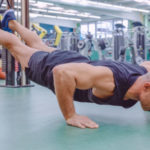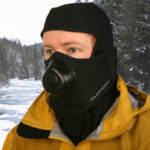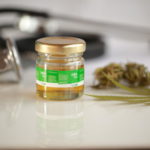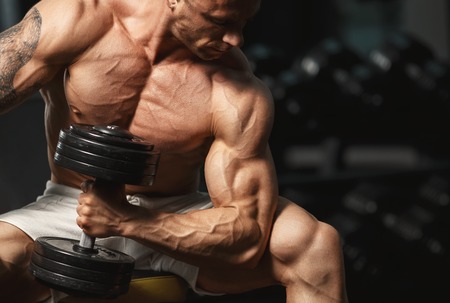Are you having difficulty building those guns? How many biceps exercises have you done? If you’re like most people, you’ve done a great many. However, biceps exercises alone are not the only exercises you can do to build those guns and often, you need to perform other exercises that help tie in the biceps to get that improvement you want.
I’ve had so many people say to me that they just cannot seem to improve their biceps. One of the problems is that they do the same exercises over and over the other is that just because a biceps exercise works for one person does not mean it will work equally well for another given our individuality.
To build good biceps, you also need to build your shoulders, core, and upper back. You see, the stronger you make these muscles the better your biceps will be. It’s just like the legs; to get bigger calf muscles you need larger and stronger thigh muscles. Every muscle group works together and while they may be separate, they are highly interdependent.
While I could write out an entire program on this for you, try it yourself. Do it for a couple of weeks, adding other exercises if you wish, but not isolation biceps exercises.
Perform the exercises for 4 days per week for 2 weeks. After two weeks, go back to your normal routine.
Advertisement: Amazon (click on photo for more info)
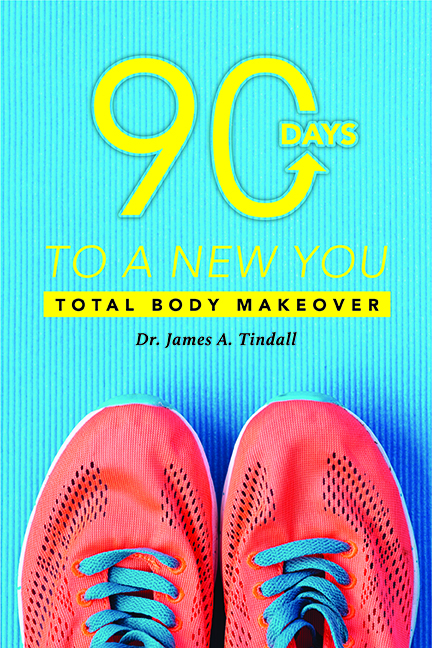
Each day it is assumed that you have warmed up prior to doing the exercises. You will be doing 6 exercises in pairs – 2 exercises each. For example, perform a set of exercise one followed by a set of exercise 2 (many call this a superset). Do both exercises until you finish all reps and sets for the pair. Then, move to exercises 3 and 4 and so on. If you are fit, it will take you about 50 minutes to perform all 6 exercises.
1. Wide-grip deadlift
2. Push Press
3. Dumbbell Overhead Reverse Lunge
4. Dumbbell Raises using Swiss Ball
5. Hip Extension and Leg Curl (Use Swiss Ball or Bench)
6. Alternating DB Bench Press
All exercises will be done at medium volume – 6 sets of 8 reps each. Rest not longer than 1 minute between sets. Hopefully you are accustomed to how much you can max with each lift. If you are, choose a weight load of 50-60 percent of your max for all reps and sets, i.e., the weight remains the same for every repetition in every set. To make it perfectly clear, I do a push press with 185 lbs for 8 reps for the first set; I use the same weight for the remaining 5 sets. You will need to eat your Wheaties because the name of the game here is shock and build!
The first exercise is a wide-grip deadlift, which if you do not know how to do, ask someone in the gym, a trainer would be good. However, some basic instructions are to load a barbell, roll against your shins. Grab the bar with an overhand grip. The grip is about twice as wide as your shoulder width. Your knees are bent about 90 degrees, back slightly arched, and arms straight. Don’t let your back round as this is a major cause of injury with this lift. Pull your torso back and up as your thrust your hips forward, while standing with the barbell. Maintain grasp on bar as you balance it then, after a few seconds, reverse the process lowering the barbell back to the floor and repeat. All exercises are described in our exercise descriptions section (https://www.myhealthandfitness.com/US/fitness/) or, simply use our search feature by inserting the exercise name to find it quickly. Videos will be added soon.
Doing these exercises will help you strengthen your weak spots while growing your biceps and finally getting the big, defined guns you want.
Exercises
For the sake of convenience, each exercise will be briefly described below.
Push Press from Rack
This exercise is a phase version of the clean and press. It is part of the phase training in speed strength to increase technique proficiency for the full clean and press. It is much easier to do since it is done from a squat rack. Or, if you wish, you can clean the weight from the floor to your shoulders without using a weight. If you clean the weight from the floor and simply stand, the movement is termed a push press since no rack is involved. Dumbbells can also be used instead of a straight bar.
1. Place a straight bar on a squat rack and load the appropriate amount of weight. The bar should be low enough so that you need to flex your legs to get under it and lift it off the rack. The grip you will use is about the same width as your power clean, clean pull, etc., i.e., generally thumbs of hands just inside shoulders.
2. Once you have lifted the bar off the rack, step back so the rack is not in your way. Usually 1/2 – 1 step is sufficient. After stepping back, the bar should be resting across the clavicle or collar bone with the elbows pointing out and not down; this will help build technique, although many lifters position the elbows more toward the down position for this part of phase training.
3. Dip your body by flexing your knees then, while pressing upward, drop your body so that you smack the floor with your heels hard, hearing a popping sound as you fully extend your hands above your head. You should have your feet about shoulder width apart.
4. Lower the weight to your shoulder then, perform the next repetition. You will not set the weight on the rack until all repetitions for the set are complete.
Dumbbell Overhead Reverse Lunge
1. Hold a pair of dumbbells above your shoulder – arms straight and feet about shoulder width apart.
2. Step back with right or left leg lowering your body into a lunge position, your front knee should be about 90 degree bent when in full lunge squat. The front leg should be perpendicular to the floor; torso upright.
3. Pause to get your balance then, reverse movement, getting back to standing position as quickly as you can. You can either do all reps on one leg then the other or switch reverse lunge leg back on forth.
Dumbbell Lateral Raises – do as bent-over or on Swiss ball (the lateral will yield better results).
Stand with your feet slightly spread and your knees flexed, i.e., slightly bent. Bend forward at the waist and keep your back straight; your arms hanging down, holding one dumbbell in each hand.
1. Raise the dumbbells to shoulder level, i.e., to your sides, keeping your elbows slightly bent as if you were pouring water from a tea pot into a cup.
2. Return to the starting position and repeat the next repetition.
Notes:
This exercise works the entire shoulder area, placing emphasis on the posterior deltoids. By pinching your shoulder blades (scapulae) together at the end of the movement you will involve the middle and lower parts of the trapezius, teres minor, infraspinatus, and the rhomboids.
You can also perform this exercise lying face down on a flat bench. However, the weight load cannot be as heavy.
Hip Extension/Leg Curl on Swiss Ball
1. Lie on your back on the floor and place your lower legs atop the Swiss ball. Next, place your arms stretched out to your sides away from your body (forming a T with the upper torso and head), palms up.
2. Push your hops up until your body forms a straight line from shoulders to knees.
3. Without pause, pull your heels towards your buttocks and roll the ball as close to your buttocks as you can.
4. Pause to get control then, reverse to starting position, i.e., you body is back in a straight line.
5. Lower your hips back to the floor and begin next rep.
Alternate One-Arm DB Bench Press
Sit on a bench, grasp a pair of dumbbells with an underhand grip and lift them to your shoulders. A neat trick to do this, particularly with heavy dumbbells is to rest the flat part of the dumbbell atop your knee and kick the knee upward to assist in raising the dumbbell. Doing this will alleviate stress from the shoulder joint. Lay back flat on the bench.
1. Inhale and alternately press your arms to an extended vertical position above your head. First one arm, lower it and then, the other. Rotate your wrist so that your palm faces forward.
2. Exhale as you complete the movement. Repeat the next repetition.
Notes:
This exercise focuses on the deltoids, particularly the anterior deltoids, and the upper pectorals, upper trapezius, serratus anterior, and triceps.
You can also do this movement standing or seated against a flat back support.


